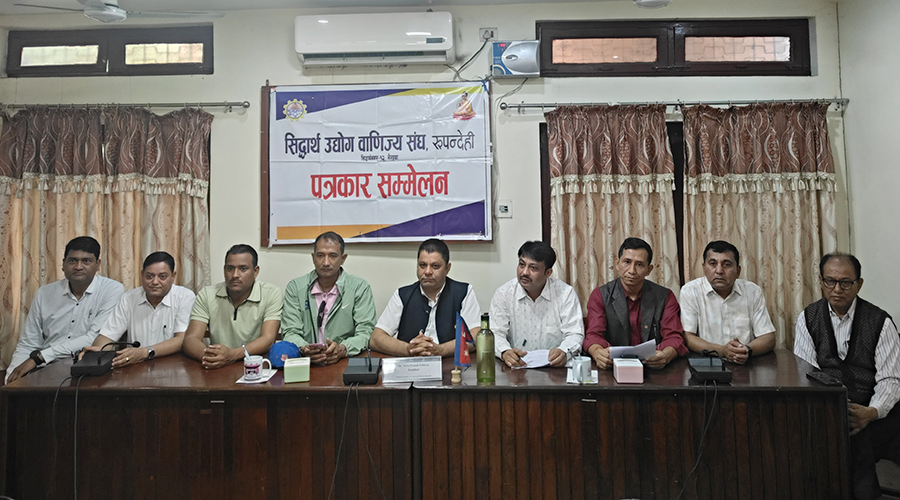
Though its producers and distributors describe Bulbul as a social drama, it essentially is a psychological affair in a realistic setting–something rarely seen in the Nepali cinema industry.
The movie communicates complex issues of human psychology through a plain life-like story told straightforward. Though the story’s end is a bit ambiguous, the movie, overall, is beautiful watch for both its content and form.
Ordinary yet powerful story
The biggest strength of the movie is its story. The story’s strength is its characterisation as the movie depicts the everyday life of a typical member of Nepali society.
This is the story of a woman who is struggling to find a balance between traditional expectations from a housewife and her compulsion to work outdoors to make a living in the capitalist world.
This is the story of a Nepali wife who is ready to sacrifice her husband’s love and intimacy for some pennies that he sends from abroad. This is the story of a Nepali mother who hopes that her child would learn sufficient English one day so that the child would not go through the same ordeals after 20 years.
From the psychoanalytic perspective, this is the story of unmet desires and other pertaining core issues. When our protagonist’s husband goes to the Gulf leaving his wife along with his paralysed father and infant daughter, the strongest support of her life also goes away. While she continues hoping that he comes back one day, the hope gradually fades after he stops sending money around two years later.
Day by day, the frequency of his phone calls wanes, and this makes the woman increasingly feel abandoned and betrayed. Also contributing to her fear is her workplace where a colleague abuses her. These circumstances collectively lead her to an unconscious desire for a ‘substitute’, which she later finds in a random guy wandering around her station.
But, as psychoanalytic theorists say, the unconscious, the storehouse of unfulfilled desires, never dies; hence nothing or no one can quench people’s desire for the original source of happiness.

Hence, this is the story of illusion and disillusionment. This is the story of sincere human needs of emotional (and physical) support from the person you can call your own. It demonstrates why every single human being is vulnerable, psychologically, in front of unavoidable circumstances. It justifies how some unconscious forces rule over people’s hopes and wishes.
Yet ordinary, this movie is powerful because it is everyone’s story. Love and affection are the needs of every single being. These are universal and timeless themes of great literary works.
Simple yet artistic expression
The most apparent evidence that this project has embraced simplicity comes from the fact that the movie does not have any flashback scenes. Though the audience hears the story of the protagonist’s past, the chronology of events is strictly maintained.
In comparison to most contemporary Nepali films, there are very few characters in this movie. The characters in the movie are there because they have some connections to the protagonist’s life. There is no one in the movie whose job is just to make the audience laugh by telling lame jokes. Even the protagonist’s husband is not shown because he is always absent.
The simplicity of ordinary life has been presented artistically in the movie. As the flute player produces an enchanting tune when our protagonist is on her first ‘date’, artistic elements have beautified the storytelling. Some of them are symbolic.
The contrast between darkness and light is important in this movie. The protagonist’s residence is dark even in the daytime; it is symbolic of the ordeal the woman has been living with. Though he also belongs to the same socioeconomic status, her boyfriend’s room is never shown in the black, to suggest a sense of hope he brings to her life. The residence of the protagonist’s friend and an abusive mechanic is messy all the time, which symbolically communicates problems in their marriage. The camerapersons have done justice to each of these settings.
There are two songs in the movie. The first is playful whereas the second is sentimental. The contrast between two is also indicative of opposite moods of the character.
Likewise, the background music is smooth in this movie. It helps the audience feel the tone and mode of the story.
Swastima Khadka impresses the audience with her acting as the protagonist. She effectively expresses the emotions of happiness and sadness, hope and fear on her face. Debuting Mukun Bhusal, in his role as the lady’s ‘boyfriend’, looks like a man with promising potential in the industry. Laxmi Bardewa has successfully presented herself as a carefree yet loving friend of the protagonist.
But, it’s not flawless
These strengths of the movie do not prove that it does not have any shortcoming. The way it has concluded is disappointing to many of the audience. It does not give any clear meaning; the audience is free to interpret it in the way they like. In the meantime, many spectators are likely to suspect that its sequel is in the offing.
Though all characters have important roles in the story’s movement, all the scenes do not. For example, the two scenes in which the abusive mechanic is shown in the toilet do not contribute anything to the movie; they only make the audience laugh.

Likewise, why did the director make the assistant mechanic and the station timekeeper unable to speak fluently? Isn’t it an example of the stereotypical view that people with speech problems are restricted to low paid jobs?
Finally, the movie title is not justified. Bulbul is the name of a tropical bird which is known for its melodious voice. What is the melody that this title wants to suggest?
Verdict
Except for the end, Bulbul is poignant and deep. The movie has the potential to attract intellectuals and commoners equally. The intellectuals should watch it to analyse difficult situations of a simple life. The commoners should watch it to understand their own life better. The movie essentially makes you think about yourself, your wishes and desires, and your strengths and frailty.
However, the movie may not appeal to those who want to entertain themselves for two hours and forget the story once they come out of the theatre. The movie is made for a feeling heart and a thoughtful mind.
—
Bulbul
Genre: Social drama
Runtime: 120 minutes
Screenwriter/Director: Binod Paudel
Cast: Swastima Khadka, Mukun Bhusal, Joes Pandey, Laxmi Bardewa, Dipak Chhetri, Ujwal Adhikari, Alina Karki
3/5

























